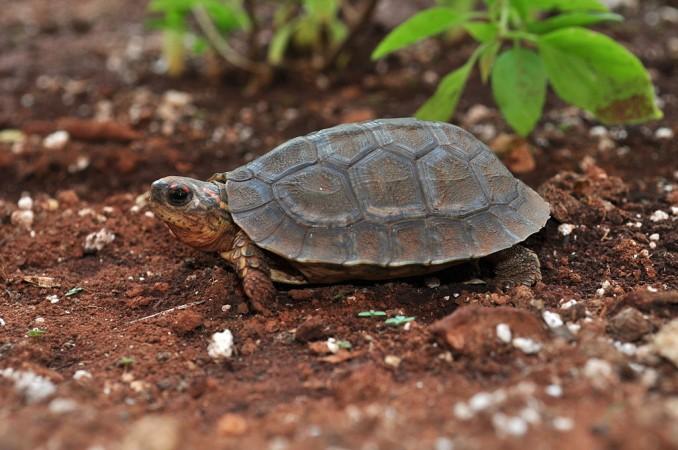
A teenager was arrested in Uttarakhand's Vikasnagar area for trying to sell a protected species of turtle on the e-commerce platform OLX. The forest department has recovered three Indian roofed turtles from 19-year-old Mohit Garg, who was using the alias Bilal to sell the specimens of the protected species.
"I have directed concerned division officer to serve notice to the website. It's the first incident in the state but to crack the whip on such activities, there should be a specialised agency," Dhananjai Mohan, chief conservator of forest (CCF), wildlife and intelligence, was quoted as saying by Hindustan Times.
The turtles were being reportedly collected from Uttar Pradesh and Uttarakhand and sold elsewhere. Delhi has a high demand for such animals, HT quoted Garg as saying. Advertisements for animals were posted online for selling to pet-shop owners and individual customers.
The forest department has said more than 250 turtles have been seized since 2011.
"We are seeking legal aid to know our powers in such situations and whether there could be a clause to filter advertisements before final display on the page," Man Singh, divisional forest officer (DFO) at Kalsi, said.
Selling a protected species is a crime under the Wildlife (Protection) Act, 1972. However, illicit wildlife trade has burgeoned online and e-commerce websites and chatrooms are being used for it.
The Wildlife Crime Control Bureau (WCCB) had in May 2016 held a meeting with representatives of Amazon, OLX, Quikr, lndiaMART and Snapdeal to sensitise them about transactions involving wildlife taking place on the websites. The websites not only agreed to help arrest such sellers, but also asked for a list of items that were banned so that they could be flagged online, the Indian Express reported.
Selling online gives sellers and buyers anonymity. To further aid the transactions, code names are used, such as "latoo" for turtles and tortoise and "scooter" for snakes.
"Trade of a host of different exotic and indigenous species has increased 100 percent since the 1980s and 1990s, with India being the primary source and one of the major destinations," BC Choudhury, wildlife scientist and former professor at the Wildlife Institute of India (WII), had told the HT in 2015.









